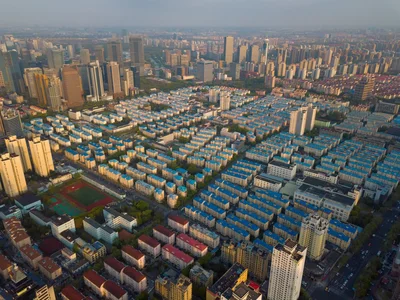
Fragile stability. China's real estate market is going through hard times
For over a year now, property prices in China have continued to decline, and recent reports from the National Bureau of Statistics (NBS) published by Reuters are disappointing. What is the reason for this drop in prices? And what measures is the government taking in this regard? Read more in the article.
The crisis in the Chinese real estate market
The Chinese real estate market is struggling to recover from the crisis that began due to the COVID-19 pandemic. We have already written that due to low demand and low purchasing power of the local population, in 2022 the profits of most construction companies decreased by 90%.
At the same time, prices for new buildings in China are falling - recently, however, not at such a fast pace. In October, the cost of new buildings decreased by 0.3%, in September - by 0.2%, according to the National Bureau of Statistics. Of the 70 cities, 56 reported monthly home price declines last month, the most since October 2020 (down from 54 in September). The real estate markets of even major cities such as Beijing, Shenzhen and Guangzhou are experiencing difficult times.
Against this backdrop, many buyers are in no hurry to make a decision to purchase real estate - as a result, a drop in demand and an even sharper decrease in the liquidity of properties. This has led to the fact that a significant part of new buildings are at risk of becoming long-term construction.
How are the authorities reacting?
The authorities have taken a number of measures that should support the construction sector. For example, restrictions on real estate purchases were eased and mortgage rates dropped. However, this has not yet helped to regain the interest of buyers.
“The most important reason for such housing prices is that demand is weak, buyers do not know whether the houses they buy will be pre-sold and whether they will be built on the dates promised by developers,” said Ma Hong, senior analyst at the Investment Institute Zhixin Research.
According to various estimates, there are approximately 20 million pre-sold units that are either not yet built or are on hold.
“House prices are expected to continue to fall in the traditional low season of November and December,” said Zhang Dawei, an analyst at real estate agency Centaline. Real estate policies, especially in tier 1 cities, need to be intensified, he added.
China's central bank plans to provide at least US$137 billion in low-cost financing for the country's urban village redevelopment and affordable housing programs.
























